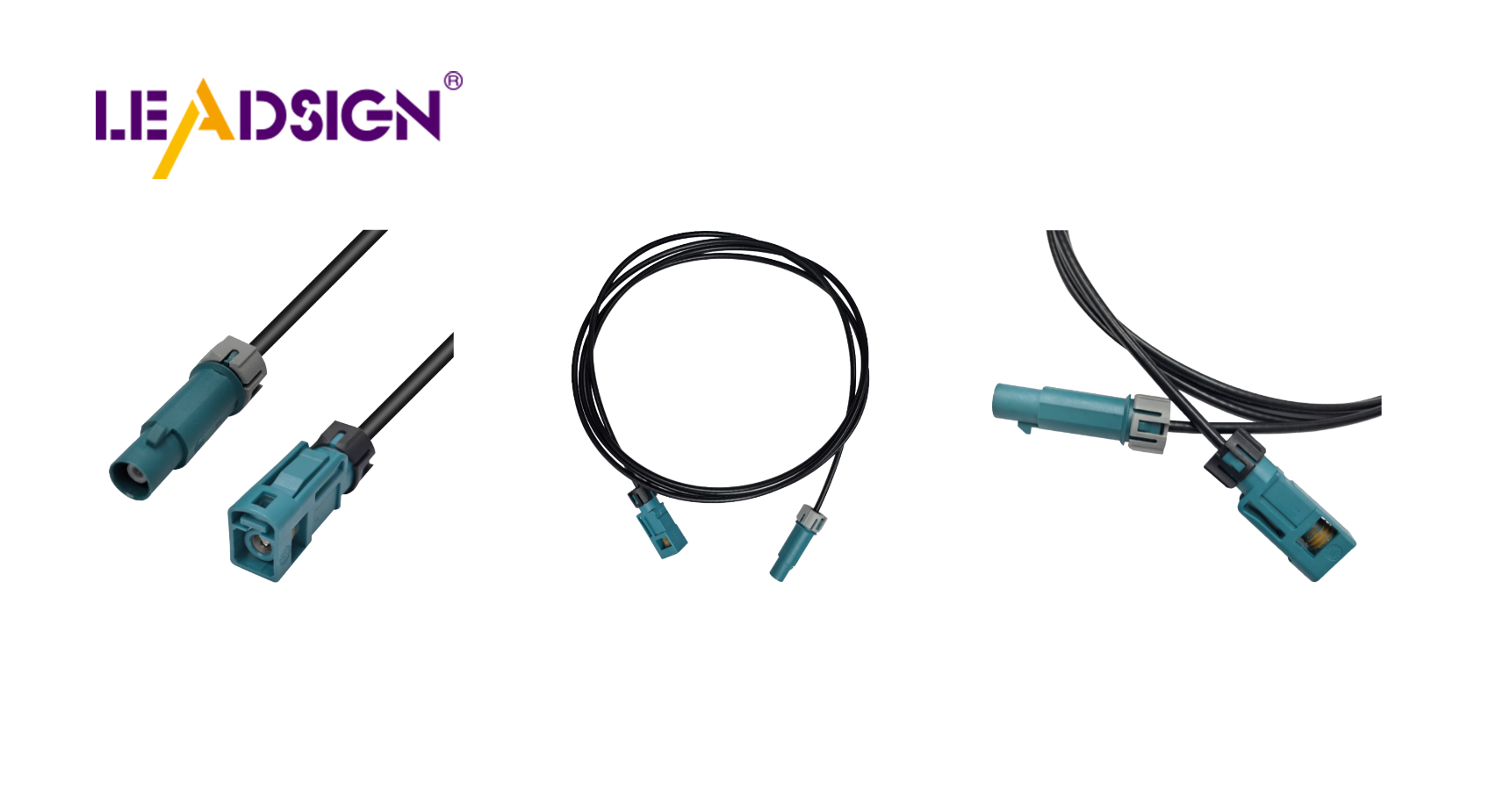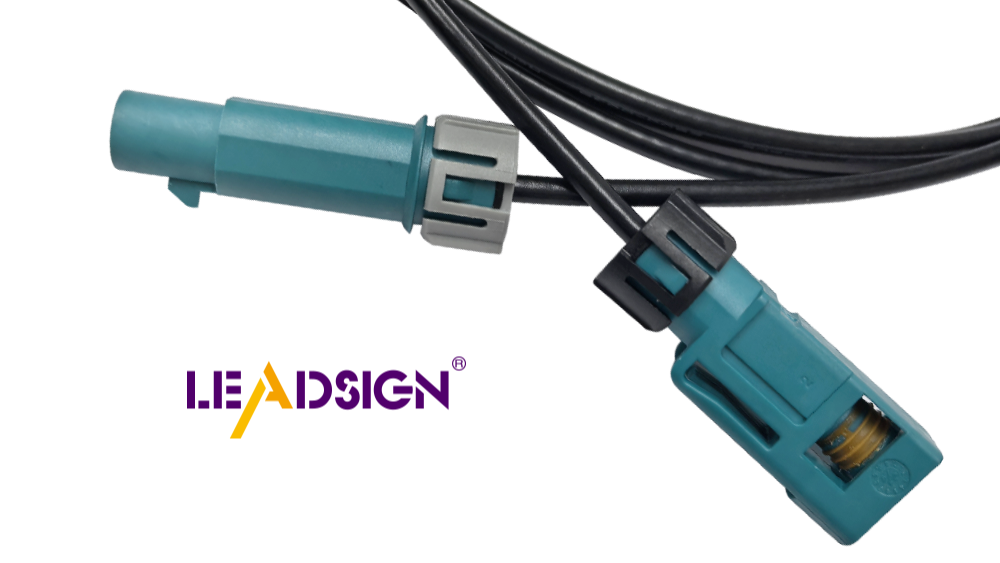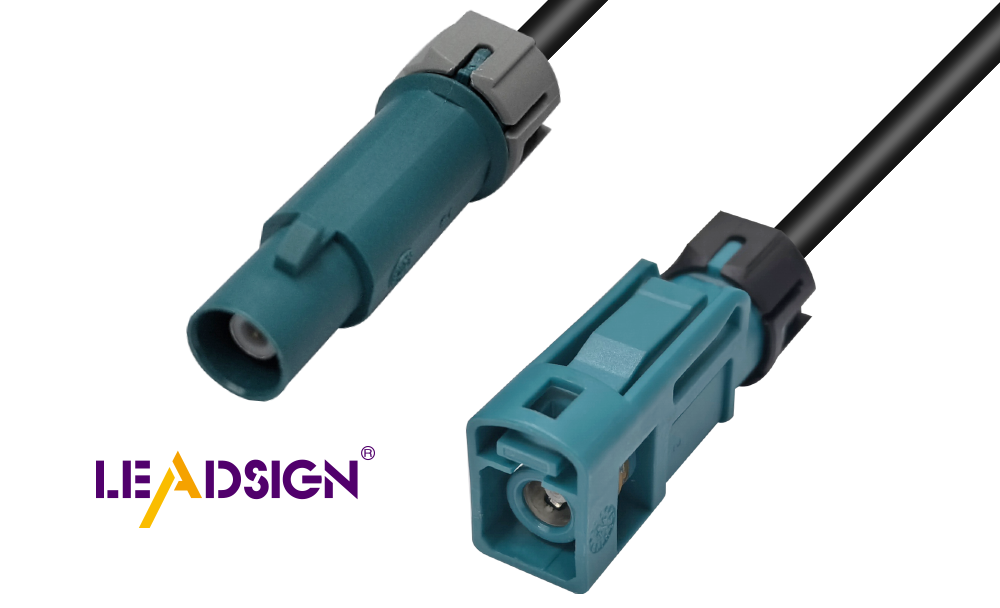What You Need to Know About Automotive Plugs and Connectors in 2025

Automotive plugs and connectors, including the car connector plug, help cars maintain steady electrical links. Bad connectors may cause loose wires, rust, or burnt parts. These issues can lead to power loss or weak voltage. Problems like rust from rubbing or incorrect use can harm connectors. Choosing the correct car connector plug prevents these problems and ensures systems operate efficiently.
Key Takeaways
Car plugs and connectors help keep electrical parts working well. Picking the right one stops power problems and keeps systems running smoothly.
There are different connectors for different jobs. Blade connectors hold wires firmly, and signal connectors help car systems talk to each other.
When choosing connectors, think about strength, size, and fit. Good connectors make cars safer, work better, and need fewer repairs.
Understanding Car Connector Plugs and Why They Matter
What Is a Car Connector Plug?
A car connector plug is a small but important part of car wiring. It helps connect different systems in a car securely. These plugs are made in various shapes for specific uses. For example:
Blade connectors are flat and keep wires tightly connected.
Pin connectors have metal pins that fit into holes, often used in engines and lights.
Socket connectors hold pins firmly for strong connections.
Barrel connectors are round and great for sending signals without interference.
Each type of connector helps your car’s electrical system work well.
How Automotive Connectors Help Cars Work
Automotive connectors are key to keeping your car safe and working well. They make sure parts can send signals and power to each other. Good connectors send signals correctly, which is important for systems like the engine and transmission. Sealed connectors can handle heat, water, and chemicals, stopping electrical problems. This makes your car safer and last longer. By staying strong, these connectors avoid dangers and keep your car running smoothly.
Where Car Connector Plugs Are Used
Car connector plugs are used in many car parts. They help the car’s computer and transmission talk for smooth gear changes. In the engine, they control fuel, ignition, and emissions. They also connect audio systems to the car’s main computer for entertainment. Connectors power windows and locks by sending energy from the battery. These uses show how important good connectors are in today’s cars.
Types of Automotive Connectors and Their Applications

Power Connectors for High-Voltage Systems
Power connectors move energy in cars, especially electric and hybrid ones. They safely transfer power between the battery and car systems. Newer cars use higher voltages than older models. For example:
Electric cars often charge at 400V.
Older cars usually use 12V or 24V systems.
Voltage Rating |
|---|
650V |
850V |
1000V |
These connectors handle strong currents and stop overheating. This keeps the car running safely and smoothly.
Signal Connectors for Communication Systems
Signal connectors help car parts send messages to each other. They link the engine, sensors, and safety systems. These connectors make sure signals are sent correctly. This is important for systems like ADAS (Advanced Driver-Assistance Systems). They are built to handle heat, cold, and shaking, keeping communication steady.
Data Connectors for Infotainment and Navigation
Data connectors send fast data for screens and navigation. They power touchscreens and heads-up displays that show info on the windshield. These connectors also support AR (augmented reality) features. AR helps drivers by adding useful info to real-world views. Their strong design works well even in tough conditions.
Specialty Automobile Connectors for Advanced Features
Specialty connectors help with advanced car tech like self-driving. Mini-Fakra connectors send data up to 28Gbps for high-quality cameras. Fakra connectors send data for antennas, GPS, and regular cameras. These connectors are key for modern car technology to work properly.
Connector Type | Maximum Transmission Frequency | Maximum Transmission Rate | Applications |
|---|---|---|---|
Mini-Fakra | 20GHz | 28Gbps | Supports multiple on-board cameras above 8MP |
Fakra | Below 2MP (1080P) | N/A | Data transmission for antennas, GPS, and cameras |
Choosing the Right Automotive Connector
Things to Think About: Strength, Size, and Fit
When picking car connectors, think about strength, size, and fit. Connectors must work well for their specific job. For example:
Brake systems need connectors for strong electric currents.
Lights need connectors that won’t rust.
Big trucks need tough connectors for heavy use.
Regular cars need easy-to-use and dependable connectors.
Strength is very important. Connectors must handle shaking, heat, and wet conditions. A good lock keeps them connected under pressure. Size is also key. Small connectors save space in tight car areas. They must match voltage and current needs to avoid problems.
Safety and Environmental Rules
Car connectors must follow strict safety and environmental rules. They face tough conditions like heat, water, and shaking. Good seals block out dust and water. IP ratings show how well they protect. Materials like brass or plastic stop rust and damage from chemicals. Features like extra support and screw locks make them stronger. Following rules like ISO or SAE ensures safety and good performance.
Matching with Car Wiring Systems
Matching connectors with car wiring needs careful planning. They must meet global standards to avoid problems. Waterproof levels depend on where they are in the car. For example, engine connectors need more protection from heat and water. Safety issues like sparks need attention too. Picking the right connector makes sure everything works smoothly and safely.
Emerging Trends in Automotive Connectors for 2025

Smaller and Space-Saving Designs
Car connectors are getting smaller and work better. Tiny connectors, like Molex Mini50, save half the space of older ones. These small designs are important for new cars with zonal setups. Zonal setups link parts based on their car location, cutting down big wires.
More people want small connectors because of advanced systems like ADAS. ADAS needs small, light connectors that still work well. Flexible circuits and flat cables are changing how connectors are made. Nanotechnology improves materials to make tiny connectors with clear signals. These changes make cars smarter and use less energy.
Wireless and Contact-Free Connectors
Wireless connectors are changing how cars work. By 2030, most new cars will connect to other devices. These connectors help with V2X communication and ADAS. Fast connectors share data quickly, which is key for self-driving cars.
5G technology helps cars talk to roads and other systems. This makes cars part of the Internet of Things (IoT), offering more than just driving. Wireless connectors also remove the need for wires, making cars easier to fix and more dependable.
Stronger Connectors for Electric and Self-Driving Cars
Electric and self-driving cars need tough connectors. Fast connectors now send data at 10 gigabits per second. Sealed connectors block water and rust, working well in bad conditions.
New materials like strong plastics make connectors last longer and weigh less. These materials handle shaking, heat, and wetness. Small designs fit in tight spaces but still work great. These updates help connectors meet the needs of modern electric and self-driving cars.
Car plugs and connectors are important for today’s vehicles. They keep systems connected and working well. Picking the right connector means checking strength, fit, and weatherproofing. Good connectors make cars safer, need less fixing, and work better. Learning about smaller and greener designs helps prepare for new car tech.
FAQ
How are car connectors different from regular plugs?
Car connectors are made to be tough. They handle shaking, heat, and water. This keeps your car's systems working well.
How do car wiring connectors make cars safer?
Car wiring connectors keep wires connected tightly. They stop power loss, short circuits, and signal problems. This helps your car stay safe and work properly.
Can I use any plug for my car's wires?
No, you need the right plug for your car. Using the wrong one can break parts or cause problems.
See Also
Why Fakra Connectors Are Essential For Today's Vehicles
Significance of FAKRA Connectors in Vehicle Technology
Enhancing Vehicle Data Flow With Advanced Connectors

